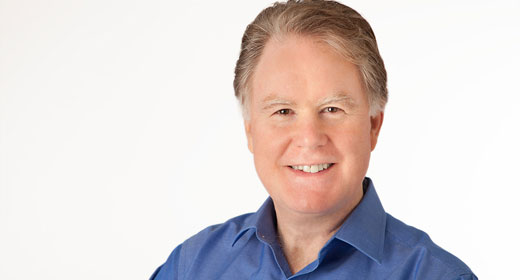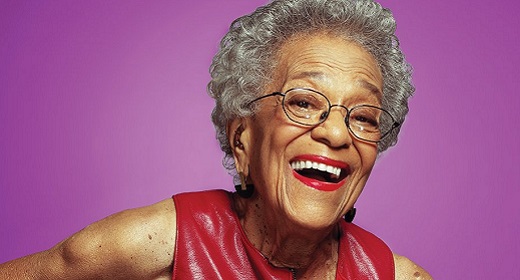by Paula Spencer Scott: These centenarians are sharing their secrets to long life…
Joe Newman tools around Sarasota, Florida, in a red Mercedes convertible. All the better to squire his “young” fiancée, Anita. She’s 100. He’s 107. John and Charlotte Henderson of Austin, Texas—they’re 107 and 105, respectively—met at the university there. Together more than 85 years, and married since 1939, they’re the oldest living married couple in America.

Joe Newman (107). (Dan Wagner/USA TODAY)
Call them “super-agers.” They’ve won the longevity lottery with the right mix of genetics and biochemistry. But wait, there’s exciting news for the rest of us: Anybody can get pretty darn close. Turns out there’s no secret to living to 100.
“We all have a genetic blueprint that, on average, should let us live to 90 in great shape,” says Thomas Perls, M.D., professor of medicine at Boston University School of Medicine and a geriatrician at Boston Medical Center, who’s tracked thousands of 100-plussers in his New England Centenarian Study (and now their kids too in a new $25 million National Institutes of Health study).
“Average healthy life expectancy is 69, so most people are leaving 21 years of good life on the table,” says Utah cardiologist John Day, M.D., who studied southern China’s remote “Longevity Village,” home to a cluster of centenarians. After six months of living what he learned, he lost 35 pounds, dropped 100 points off his cholesterol and 25 off his blood pressure, cured his insomnia and went off five different meds.
We asked these “centenarian whisperers”—researchers who’ve met more of the oldest old than anyone on earth—how it’s done.
“It’s a myth that the older you get, the sicker you get. It’s more like, the older you get, the healthier you’ve been,” Perls says. Until your late 80s or 90s, genes get only a fourth of the credit. The rest is down to simple health behaviors.

John and Charlotte Henderson (107 and 105). (Courtesy Longhorn Village)
11 Expert Tips to Live Longer and Healthier
It’s never too late to start snatching back some good years, longevity experts agree. “The best time is to start from childhood,” says longevity expert John Day, M.D. “The second-best time is today.” Here’s how to get started.

(iStock)
1. Eat Less
Twist: Just enough less to maintain healthy weight.
Maybe you heard mice on super-low-calorie diets live longer. But only at calorie levels unrealistic for most humans, Perls says. Instead, try adjusting how much you consume per meal: “Eat breakfast like a king, lunch like a prince and dinner like a pauper,” says Dan Buettner, author of The Blue Zones Kitchen, based on diets followed by centenarians worldwide in places he calls Blue Zones.

(iStock)
2. Have a Drink or Two a Day
Twist: But don’t assume there’s magic in alcohol.
Social engagement while drinking may be why long-lifers tend to have one to two drinks per day, says University of California, Irvine’s Claudia Kawas, M.D., whose 90+ Study found this sweet spot.

(iStock)
3. Keep the Faith
Twist: God works in mysterious ways for your well-being.
Researchers aren’t entirely sure why people practicing a religion live longer. But they credit its related social life (seeing a pattern here?), volunteerism, stress-reducing prayer and attitude of gratitude.

(iStock)
4. Close Friendships
Twist: It helps if they’re healthy friends.
“Health behaviors are as contagious as catching a cold,” Buettner says. “If your three best friends are obese, there’s a 150 percent chance you will be.” People who are fit, active and eat right tend to reinforce one another.

(iStock)
5. Avoid Loneliness
Twist: Be aware you can suffer toxic loneliness even while with others.
Older adults who see only their spouse or the same two family members all the time fare less well than those who get stimulation from a wider social circle.

(iStock)
6. Get Social Time
Twist: When it’s safe, in person is better.
“Real, not virtual, social connections are important,” Day says. “One study showed that social isolation is just as much a threat to longevity as smoking or obesity.” Research shows a dose response: The more time spent in social activities (book clubs, volunteering, hobbies), the lower the mortality risk. When it’s not safe to meet face-to-face, digital social connection is better than nothing.

(iStock)
7. Be of Good Cheer
Twist: If you’re not born this way, you might be able to develop it.
Centenarians in Nir Barzilai’s longevity study at the Albert Einstein College of Medicine have an outgoing, easygoing, optimistic personality—traits that keep them engaged with the world. It may be genetic, the author of Age Later says, although personality can change even in adulthood.

(iStock)
8. Stimulate Your Brain
Twist: You need to keep leveling up.
Crosswords only help when you first start, because you learn most at the beginning. Then you have to move on to Sudoku or other puzzles (or better, new brain-stretching activities) to get cognitive benefit, Kawas says.

(iStock)
9. Exercise 45 Minutes a Day
Twist: Gym-rat marathoning not necessary.
“It can be two or three shorter sets that add up to 45 minutes,” says Kawas. Aging experts agree lifelong movement—from climbing stairs to walks to dumbbells—is longevity aid No. 1.

(iStock)
10. Have a Purpose
Twist: Unlike a job, purpose doesn’t end.
“Retirement is a toxic word. It sends the signal that your productive life is over and now you begin a life of repose,” Perls says. Adds Buettner: “If you have a sense of purpose and are engaged with the world, there’s a psychosomatic effect. Your body rises to it.”

(iStock)
11. Eat a Mostly Plant-Based Diet
Twist: “Anti-aging” vitamin cocktails don’t help.
What gets you to 90: basics. Focus on protein (but not much red meat), healthy fats and complex carbs. The five dietary pillars in the Blue Zones: whole grains, greens, tubers, nuts and beans. “One cup of beans a day adds three to four years of life expectancy,” Buettner says.
Which Route to 100 Will You Take?
Survivors first get hit with age-related diseases (stroke, heart attack, some COPD) after 60 but cope with them much better than the rest of us.
Delayers first develop age-related diseases after 80. They tend to stay independent to an average age of 93.
Escapers make it to 100 without showing disease. About 15 percent of centenarians in this group are likely to make it to “supercentenarian,” age 110. (Perls’ study includes more than 100 supers!)
Secrets from 4 Super-Agers

(Tom Gorman/USA TODAY / Ed Maximus)
Ruth Kundsin, 103, Quincy, Massachusetts and Ida Keeling, 105, New York City
Their secret: Keep moving
You’ll find Kundsin doing cardio and strength training at her local YMCA. Think you’re too old to work with a trainer? She started with hers at 93. Keeling is a world record-holder in sprinting who didn’t lace up running shoes until age 67.

(Lisa Schaffer Photography)
Alan R. Tripp, 102, Bryn Mawr, Pennsylvania and Marvin Weisbord, 89, Bryn Mawr, Pennsylvania
Their secret: Try new things
Tripp wrote the lyrics for Senior Song Book, an album he made in collaboration with a fellow resident of his Pennsylvania retirement community, jazz pianist Marvin Weisbord. It’s is available for streaming and on MP3, but the first run of CDs sold out within days.
8 Easy Life Changes That Could Add Years to Your Life
We asked our four longevity experts how studying the oldest of the old had changed their lives. Here are eight changes they’ve made—that you can make too.
John Day, M.D., co-author of The Longevity Plan
- Climbs a Utah mountain daily. “A man named Boxin, of China’s Longevity Village, told me, ‘If I go one day without climbing the mountain, I feel uneasy. If I go two days, my heart is troubled. If I go three days, my muscles and bones ache.’ He didn’t view this as his daily workout. Rather it was his daily meditation—a chance to leave the daily worries of the world behind. For us, that mountain could be anything.”
- Changed his diet to eliminate junk food, simple carbs (white flour and sugar) and meat—which jump-started his health change.
Thomas Perls, M.D., of the New England Centenarian Study
- Eats mostly vegetarian and puts more emphasis on exercise. An inspiration: Walter Bruening of Great Falls, Montana. “He was the oldest man I ever met [114] and close to the oldest man ever recorded [116]. He spent 90 minutes talking, never repeating himself.”
- Took up birding. “I’ve learned that people in their 70s, 80s and 90s are never too old to take on new challenges, like starting yoga (which is something most of us should do to prevent falls) or a new cognitive challenge.”
Claudia Kawas, M.D., of UC Irvine
- Cut back a little on coffee. “I’m a big coffee drinker, and our study showed that 200 to 400 mg of caffeine [two to four cups] a day is the sweet spot.”
- Tries to take the stairs and park in far spots. “We don’t need more research to prove exercise is good for us, we need research to tell us how to get people like me to do it.”
Dan Buettner of Blue Zones
- Consciously spends more time with friends who like playing sports over watching them on TV, and who are vegetarians rather than junk-food eaters.
- Tries to eat all his calories in a short window. Role model: Ellsworth Wareham, a centenarian in Loma Linda, California, who only ate between 10 a.m. and 4 p.m. and fasted in between. “I’m 60 percent there.”










































